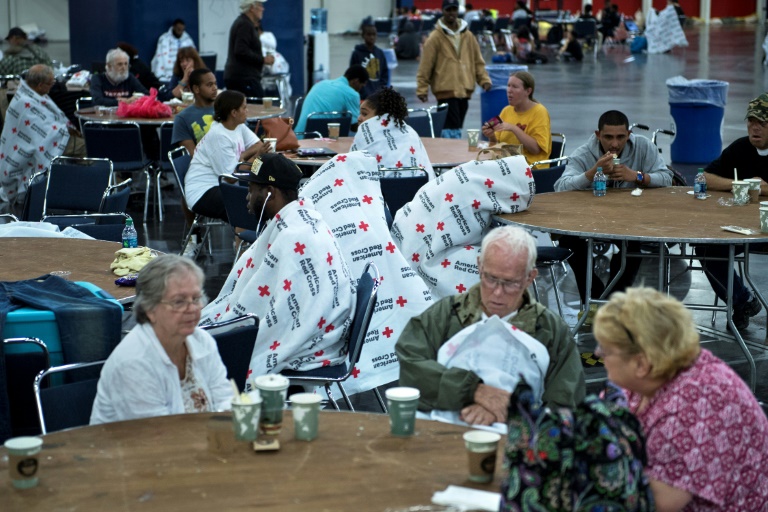Immediate risks from floods include death by drowning — often people drown in their cars as they try to flee — electrocution, and hypothermia.
The long-term picture could be even more dire, as communities grapple with immense amounts of polluted water in the streets, in homes and businesses.
When floodwater washes over a heavily populated metro area like Houston, it is sure to be dirty and dangerous, experts say.
“There is sewage, all kinds of pesticide, waste, herbicides and toxins that we don’t even know of — are all going to wash in,” Ranit Mishori, a family doctor and a professor at Georgetown University School of Medicine.
“We are talking hundreds of different types of bacteria and viruses that could contaminate that water,” she added.
People can get sick simply by wading through dirty floodwater with a scratch or an open wound.
“The biggest issue is the release of sewage and bacterial-related infections,” said Howard Selinger, chair of family medicine at the Frank H. Netter MD School at Quinnipiac University.
Dirty water can also infiltrate the drinking water system, raising the risk of contaminated water and with it, cholera.
Cholera causes acute diarrhea, causing some three to five million cases of illness and more than 100,000 deaths each year worldwide.
“The spread of cholera is one of the most significant dangers following any natural disaster, but especially flooding after a hurricane,” said Robert Glatter, an emergency physician at Lenox Hill Hospital in New York.
“Cholera is quite contagious, and can be transmitted person to person by infected feces after dirty water is swallowed, or from contaminated food with vibrio cholera bacteria.”
Cholera is rare in the United States and other industrialized nations, but has been on the rise worldwide over the past decade, according to the US Centers for Disease Control and Prevention.
– Dirty floodwater –
Studies of multiple floods worldwide have shown a spike in the incidence of a disease called Leptospirosis, which is caused by caused by rodent, pig and horse urine, and can be fatal.
The bacteria can enter the body through the skin, mucous membranes, or by drinking water.
Symptoms occur within two days to four weeks, and may start off as flu-like, with fever, vomiting, chills and diarrhea. Some people get progressively sicker, and may have liver and kidney failure along with meningitis.
“The elderly and disabled are really, incredibly highly vulnerable,” said Mishori.
“Also sick people and children are highly vulnerable. They will the first victims.”
People can even get sick from washing or bathing in contaminated water.
“It’s essential to boil all water for bathing, brushing your teeth, or drinking after a flood. Bottled water remains the safest water source in this setting,” said Glatter.
– Mold, mental health –
Being forced to evacuate, live in a makeshift shelter, and losing one’s possessions can all cause mental trauma that lasts long after the event, experts say.
Hospitals may fill up quickly, and people may have a hard time getting lifesaving medications and health care.
Over the weeks and months to come, soggy buildings will grow mold, which can be toxic and can cause a host of health problems for people exposed.

Food and safe drinking water is being provided to hundreds of Houston residents driven from their homes by floodwaters
“One of the legacies of (2005’s Hurricane) Katrina was the mold that remained for a long, long time in schools and other buildings,” said Mishori of the devastating storm that lashed Louisiana.
“There is no question that the mold is going to present itself at some point.”
Viral illnesses such as West Nile and Zika could also begin to spread in the coming weeks, as mosquitos take advantage of all the extra standing water to breed.
Multiple studies have analyzed the long-term health effects of disasters, and have found that the struggle is far from over once the floodwaters recede.
“Most of them have found that a year out in the communities affected there are much higher rates of mortality in general, of heart attacks and strokes,” said Mishori.
Download our app